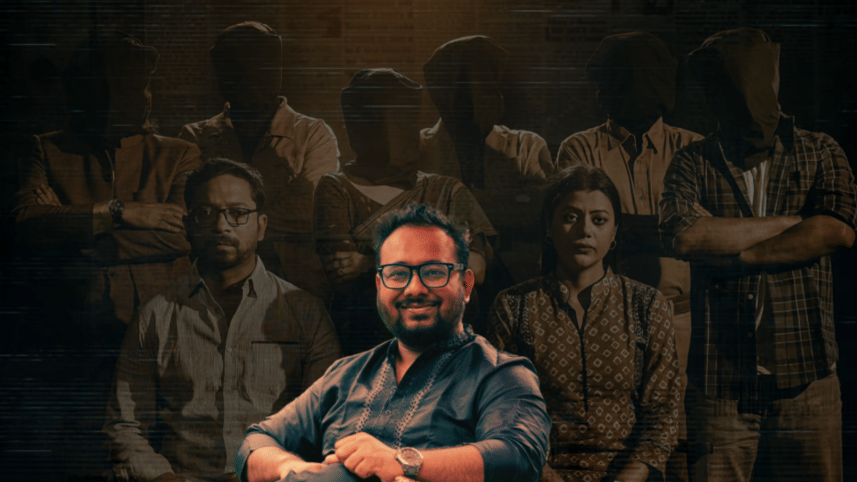Raihan Rafi opens up about ‘Omimangshito’ release

The Bangladesh Film Censorship Board (BFCB) halted the screening of Raihan Rafi's film "Omimangshito" on OTT platform iScreen, citing concerns that it was unsuitable for public viewing.
The decision was allegedly driven by claims that the film portrayed real-life, brutal murder cases involving two prominent Bangladeshi journalists. This move by the censor board to regulate web content sparked criticism from the outset.
The censor board argued that the film blurs the lines between reality and its narrative, acting, and dialogues, rendering it unsuitable for public viewing.
Since the previous government's fall on August 5, the situation has shifted. The film industry is now pushing for the release of not only "Omimangshito", but also all other films held up by the censor board. Moreover, other filmmakers have come together to firmly call for the complete elimination of the censorship system.
Raihan Rafi is confident that the new interim government will ensure that "Ominangshito" will have a swift release soon.
The director told Channel i online that he will submit "Omimangshito" for censorship again soon.
"We are now planning to reapply to the Ministry of Information. We will request the ministry to allow the release of 'Omimangshito,' said the director.
Although there is no censorship requirement for OTT platforms, the makers were still asked to submit it for censorship, and they complied. Later, the Ministry of Information informed them that they could not show "Omimangshito" to the audience.
The teaser of "Omimangshito" in February sparked speculation that it drew inspiration from real events, potentially the still unsolved Sagar and Runi double murder case. Despite no direct reference, the BFCB flagged its violent content. Concerns over potential misinformation hindering investigations have been raised as well.
Upon those allegations, Raihan Rafi said, "The film is based on a fictional story, and that case is 'Omimangshito.' There are many such unresolved cases in Bangladesh. If a story happens to resemble real life slightly, it cannot be deemed unacceptable to stream. This is not acceptable in any way."
The film's poster features Imtiaz Barshan and Tanzika Amin as the main characters, with several people standing behind them wearing black masks.



 For all latest news, follow The Daily Star's Google News channel.
For all latest news, follow The Daily Star's Google News channel. 
Comments